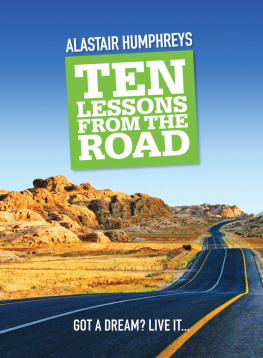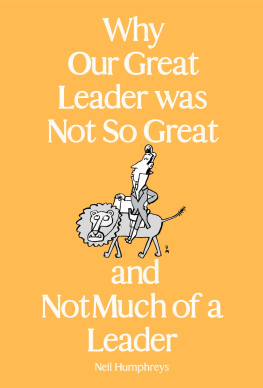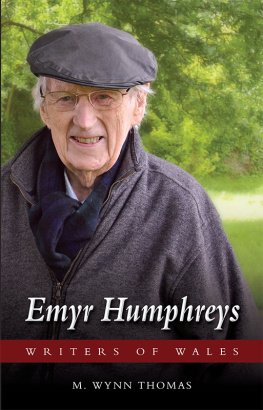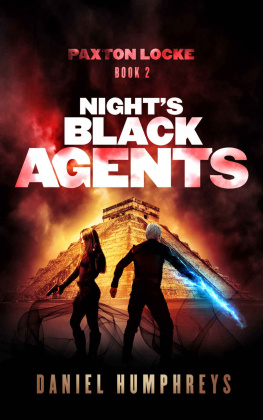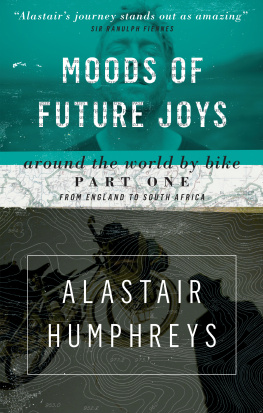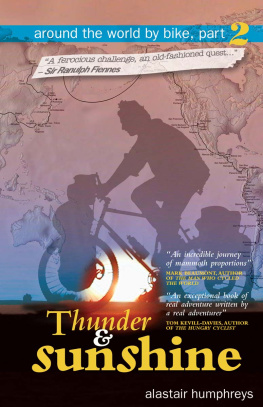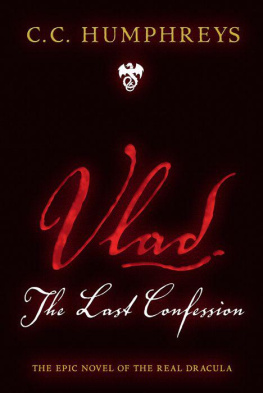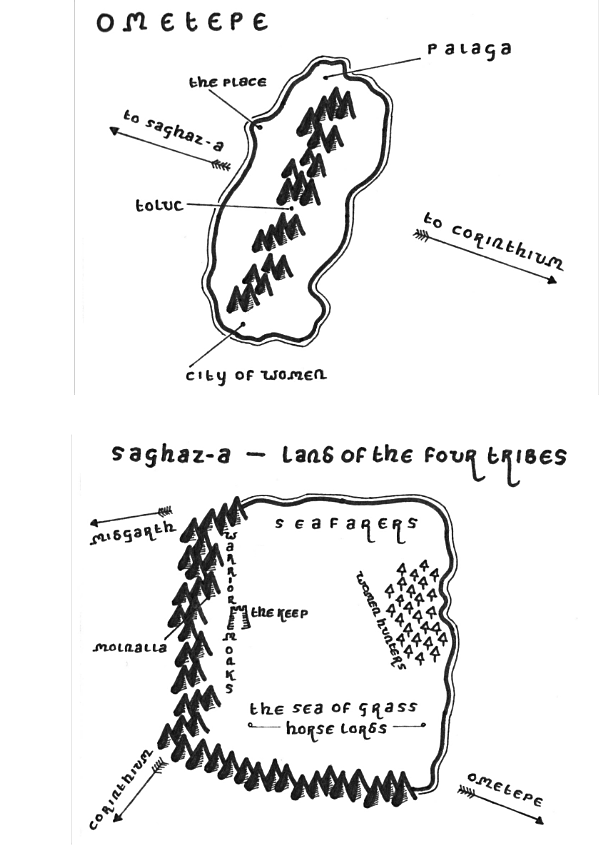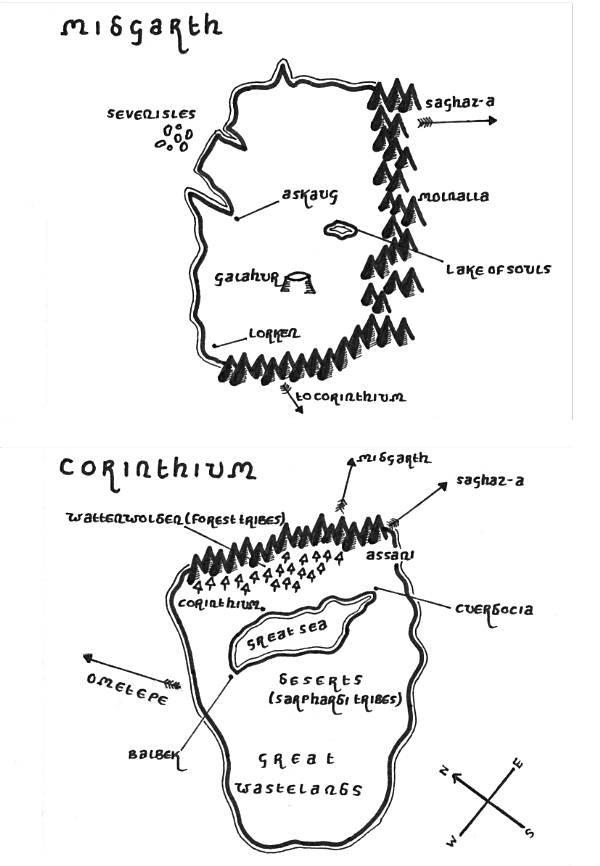To Karim and Amanda
GOLLANCZ
LONDON
Contents
Maps
Corinthium:
Ferros
Ashtan
Megaloumos
General Olankios
Lara
Aisha Laras younger sister
Gan, Tutor Timian monk of the Southern Xan tribe
Mikon ships captain, Arcrana Isles
Streone Lascartis Innovator of the Great Theatre
Lascartis, Gonarios, Trebans old families of the city
Lucan Leader of Council of Lives
Roxanna his daughter
Graco Lucans servant
Maltarsus workers leader
Marya his wife
Andropena whore
Parkos general
Carellia former whore
Gandalos Cuerdocian officer
Smoke
Caradocius legendary leader of the northern (forest) Wattenwollden tribes
Stephanos young man at cult ceremony
Traxia old woman at cult ceremony
Ometepe:
Atisha
Intitepe
His daughters:
Tolacca priestess, 300 years old
Sayana Youngest, 70 years old
Amerist Warrior, 150 years old
Asaya Atishas childhood friend
Old Gama
Fant dog
Saroc priest king, immortal
Nak mountain guide
Bok guide
Poum the One
Muna governess of the City of Women
Besema formerly the One
Natara maiden of the marana
Yutil formerly the One
Novara formerly the One
One-eared Salpe warrior
Ravaya maiden in city
Tokat Intitepes commander at City of Women
Santepe last defeated son
Midgarth:
Luck
Freya
Hovard
Bjorn Swift-Sword
Einar the Black
Agnetha
Stromvar
Gytta Lucks wife
Ulrich the Smith
High Priest
Peki Asarko
Petr the Red
Ut the Slayer
Four Tribes:
Priests:
Anazat High Monk
Alon assassin
Hunters:
Gistrane (in Ometepe)
Karima huntress
Korshak Horse Lord
Serimaz:
To Horse Lords, he was Wind Rider
To Seafarers, Shield from Storms
To Huntresses, Moonlight Hunter
To Priests, The One before the One
In the time before what some in their own tongue would call the cataclysm, and others the awakening, the planet was divided into four worlds.
Separated by unclimbable mountains and by unsailable seas, for many thousands of years the people who lived in each world knew nothing of any other, thought that they ruled the planet alone. Yet eventually in every world there was a story that linked them all: of a visitor who fell from the sky or who came from the ocean, half a millennium before our present days.
The visitor brought gifts. Gifts that many, in their own tongue, would call curses.
The one who came appeared differently to the different peoples as man, woman or child. Was called Gudrun Gift Bearer in the North, Andros the Blind in the South, Tasloc Wave Rider in the West. And the first gift given, but only in three of the worlds, was immortality. A small number amongst them would be born and live for ever. They would discover it only upon their death and their rebirth. It could be neither chosen nor willed. Old men and young, women and babes, it could come to any. It was not inherited, although from time to time immortals did bear immortals. Most would watch in sadness as the one theyd married when young or the baby theyd given birth to grew grey, passed them and died. Thus everywhere was immortality seen as both blessing and curse. And it changed each world utterly, according to their separate ways and customs.
The second gift the visitor gave to every immortal changed it more. For it was the gift of possession possession for a time of anothers body and life and again it was different in each of those three worlds.
In the Southern lands, that would become Corinthium, immortals could possess another person, a mortal. Dissolve into them for a time, their own flesh gone, their spirit and mind transplanted. Wise men and women over the years believed that the visitor gave this gift so that immortals would themselves grow wise, having lived in anothers skin, in their minds and hearts felt their pains, learned their longings, discovering how another needed to live, so they could be as shepherds to the flock and help all to live well.
It is not what happened. For in that land it first became a sport, and then a way not to help but to control.
And thus the gift was squandered.
In the land of the North, that came to be known as Midgarth, the gift of possession was different there the immortals could possess only beasts. All that ran, flew, swam or slid on their bellies across the ground were available to them. It took but sight, a moment of sinking, before their bodies were gone and human became animal. Again, for those who first received it, it appeared to be a gift for learning. To discover, for the brief time of possession, that animals were not lesser because they did not reason as man reasoned. That each furred, feathered, scaled deserved their place in their world as man did, with as much respect. Yet here, as in the South, this gift swiftly became a game, a chance to make a tale to be told before the hearth-fire on long winter nights.
And thus the gift was wasted.
In the third world, Ometepe, one immortal killed all others before the power of possession which would be different there was discovered.
And thus the gift was lost.
Yet what of that fourth world, the largest of all worlds, itself divided into four tribes, that would be known as saghaz-a , or Land of Joy? The visitor also came to it, though much later, only a hundred years ago. There she was called azana-kesh or the one who comes before. She gave each of the scattered, warring peoples of that world a different gift. Not immortality, not possession.
Hope. Hope in the form of prophecy. Of someone who would come to unite all worlds but only if the four tribes first united themselves.
It took near one hundred years, of war and hatred. Until they were ready. When they were, azana the One was born. Not in their land. Far away. Yet by then a united people had found ways to climb unclimbable mountains, and sail unsailable seas.
Now is the age of prophecy fulfilled. Now is the age of the darkness that gives way to the light. The end of the dominion of the Immortal. The beginning of the dominion of Man.
The age of azana . The age of the One.
(From scrolls found in a cave on the mountain of Gorach. Attributed to Smoke, the Hermit)
Of the two men who lay beside each other on the ridge, watching the kidnappers camp, one was to take a mortal wound that night, the other a wound that would make him live for ever. Neither could know it, for the gods had not cursed them with the far-seeing eye. Neither would have cared if they had known. Half odds are good odds was a law they lived by in the hills of the Sarphardi, where death was so easy to come by. Both would have taken the bet and gone to grave or immortality with a gamblers accepting smile.
Neither cared about anything other than what they did next. About that they cared a great deal and because of it the two men, closer than brothers, did what they rarely did: quarrelled, in short, angry whispers.
Next page

![Linsi Sends - Meant to Be Immortal [calibre]](/uploads/posts/book/899457/thumbs/linsi-sends-meant-to-be-immortal-calibre.jpg)

